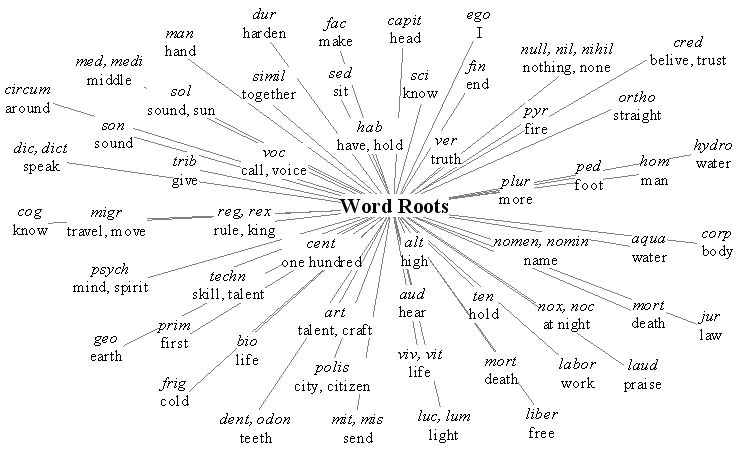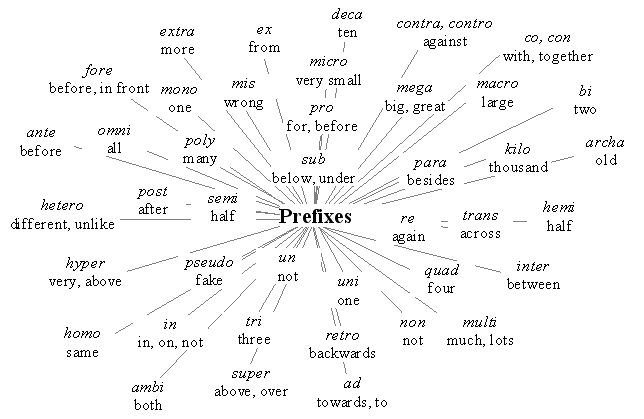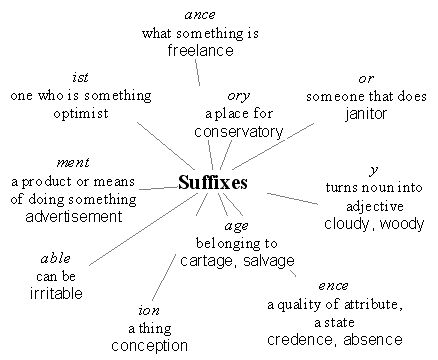Meaning from roots
The root of a word is the main part of the word that gives it most of its meaning. Using the root of a word, you can usually form lots of different types of words, which share some common meaning. Take the Latin root ‘cred’ for instance. Its base meaning is ‘believe’ or ‘trust’, but you can get lots of words from it:
Credit as a noun:
• a loan offered by someone or a company,
• a belief or trust in something, or
• an amount of money paid to reduce a debt.
Credit as a verb:
• to believe or trust in, or
• to deposit an amount of money into a financial account.
Discredit:
• To destroy belief in something; to ruin something’s reputation.
Credulous:
• Easily believing, gullible.
Incredulous:
• Disbelieving.
Incredible
• Something amazing and hard to believe.
Credence
• Something generally accepted as being true or believable.
And there are many more words that have the ‘cred’ root in them. Most of them share a bit of meaning - all the words above have something to do with belief or trust. There are a lot of word roots; here are some of the most common ones:

You’ll see these roots popping up in words all of the time. Here’s a sentence which manages to use quite a few of them:
The prime minister’s primary mission was to facilitate the immigration process for the technicians who were finishing the hydroelectric dam outside the capital.
One of the most common ways that words are formed is by using the root of the word and adding a prefix or a suffix. A prefix is a bit that you add to the start of a word; a suffix is a bit that you add to the end of a word. Here are some of the more common prefixes and what they mean:

Say we start with the root ‘ortho’ - it means ‘straight’. One word that is formed from this root is ‘orthodox’. When you do something in an orthodox manner, you’re doing it in the normal, ‘by the book’, way. But by adding the prefix ‘un’ to the start (remember prefixes go at the start of a word), we can reverse its meaning. ‘Unorthodox’ means not in the usual way, or strange.
Walking is considered an orthodox way of getting around for people.
Walking on your hands, however, is considered a very unorthodox way of getting around.
Suffixes are like prefixes except that they go at the end of the word. Here are some of the most common suffixes:

I find suffixes a bit harder to recognise in words than prefixes, and also harder to work with. Compared to prefixes, what a suffix does to a word seems to depend a lot more on the meaning of the word it’s attached to.
The irritable old man closed his rheumy eyes, having noticed the absence of any compassion in the film being shown in the refectory.
So if you see a word you don’t recognise, check to see if any parts of it look like any of the roots, suffixes, or prefixes you know.
Click here to move on to the next topic: Meaning from sounding out a word